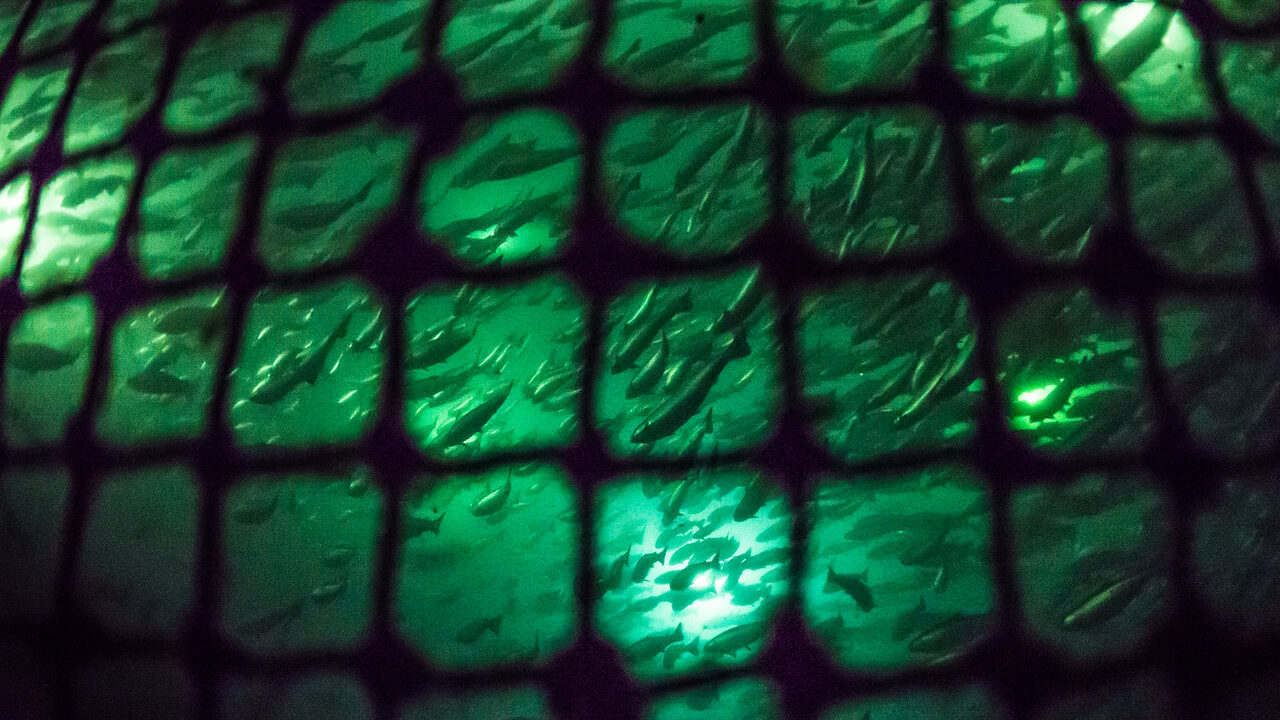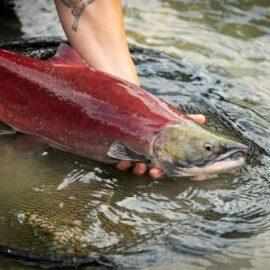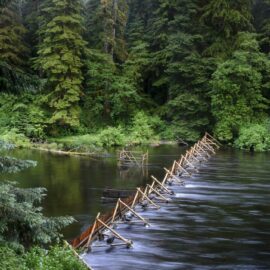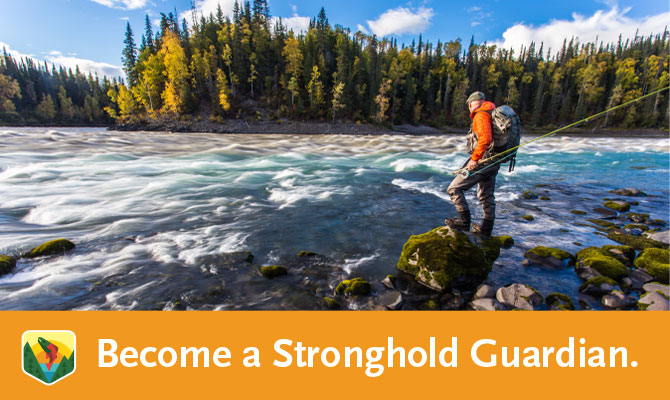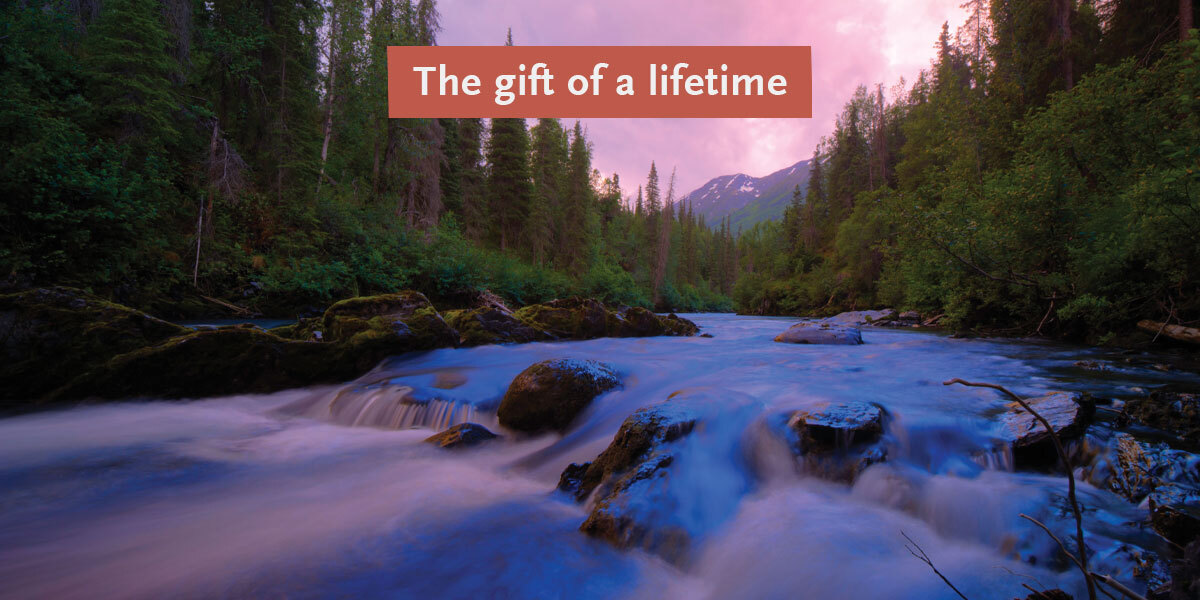Wild Salmon Center is partnering with Watershed Watch Salmon Society to make sure that Canada follows through on its promise to transition from marine salmon farms.
This summer, Canada’s Department of Oceans and Fisheries (DFO) made gains toward a promise to end open net-pen salmon farming in British Columbia with the closure of 19 operations located near the Discovery Islands.
Within weeks, the positive impacts of this move were clear to an independent field sampling team as it conducted annual observations of juvenile wild pink and chum salmon passing through these waters.
Monitoring these populations had been a sad task in the past, due to the salmon lice covering the young fish. But this time, things were different.
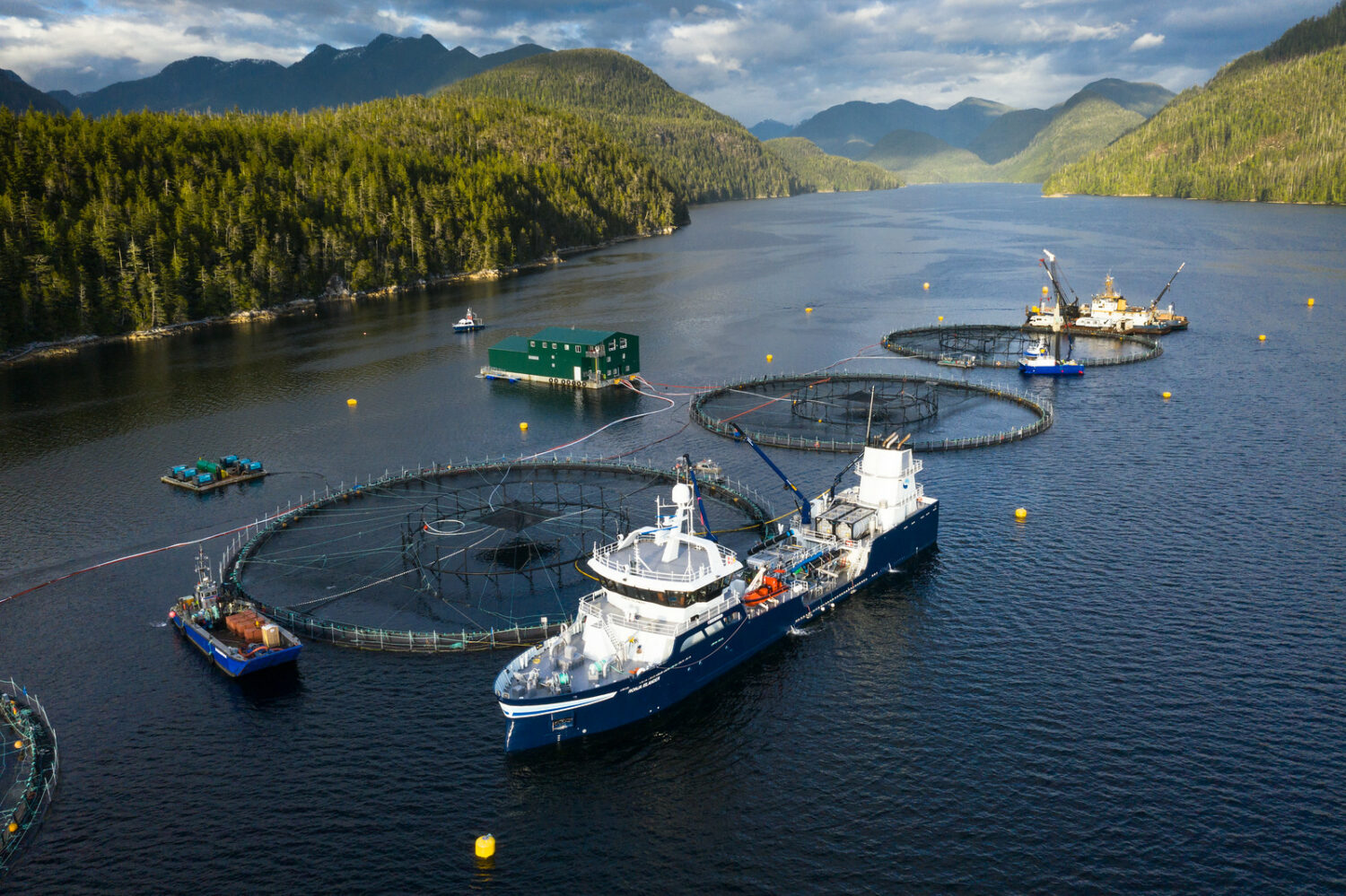
“Researchers had been sampling juvenile salmon out there for years,” says Stan Proboszcz, Senior Scientist with Watershed Watch Salmon Society, a B.C.-based charity focused on wild salmon conservation. “And these fish were the cleanest they’d ever seen.”
“Researchers had been sampling juvenile salmon out there for years. And these fish were the cleanest they’d ever seen.”
Watershed Watch Salmon Society Senior Scientist Stan Proboszcz
For decades, wild salmon and steelhead from the Fraser and other key B.C. salmon rivers have run a gauntlet of parasites, viruses, and bacteria while traveling past open net-pen fish farms. And because these farms operate in open marine waters where many wild salmon stocks mingle, these negative effects also travel beyond B.C. to fisheries from Alaska to Oregon.
“There are at least a dozen papers in top science journals on how open net-pen farms negatively impact wild salmon,” Proboszcz says. “The fact of the matter is that many migrating fish have no choice but to pass by these farms.”
These threats can be particularly lethal for wild salmon at the start of their marine life cycles, with potentially devastating effects on population health. Coho and Chinook runs in southern B.C. have been in sharp decline since at least the 1990s, when salmon farming operations first launched. And that trend extends to many other salmonid populations, including Interior Fraser River steelhead, the subject of the latest campaign for listing under Canada’s federal Species at Risk Act.
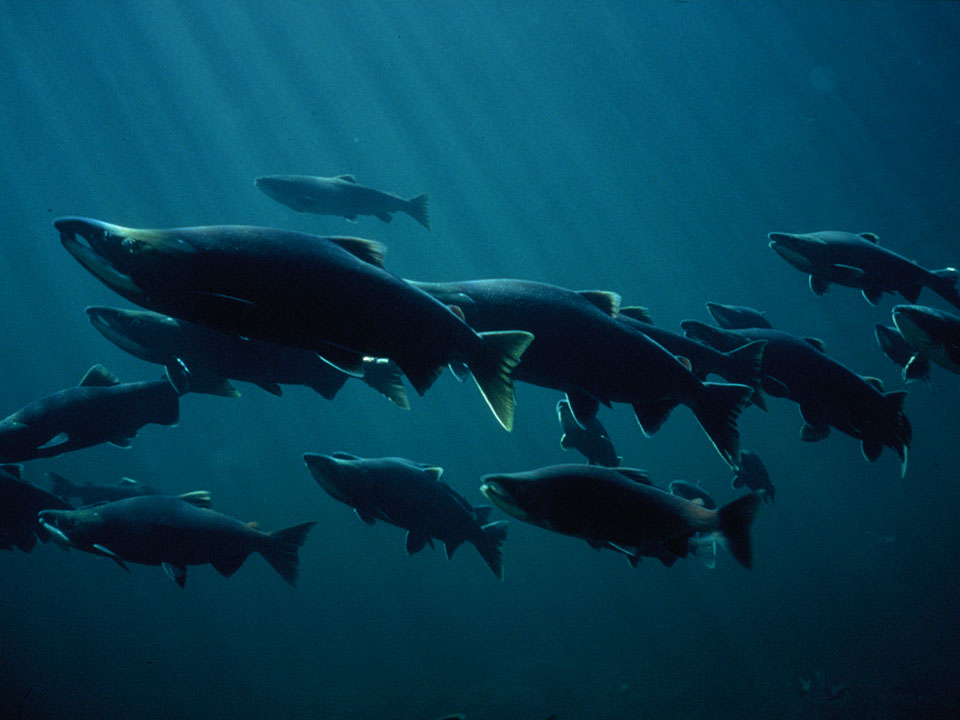
While the decline of wild Pacific salmon stems from a suite of factors—among them, human development, overfishing, ocean conditions, and climate change—there’s no question that open net-pen salmon farms contribute.
“Open net-pen fish farms pose well-known risks to wild salmon,” says WSC Salmon Watershed Scientist Dr. Will Atlas. “For the last three decades, their waste, parasites, and pathogens have had serious impacts on wild salmon throughout southern B.C., with far too little government oversight.”
“The fact of the matter is that many migrating fish have no choice but to pass by these farms.”
Watershed Watch Salmon Society Senior Scientist Stan Proboszcz
Even with clear science and strong public pressure, DFO has been slow to act in the best interests of the nation’s wild fish. In 2019, the department made a public commitment to transition away from open net-pens by 2025. Yet this October, public statements from Minister of Fisheries Joyce Murray appear to walk back some or all of that promise.
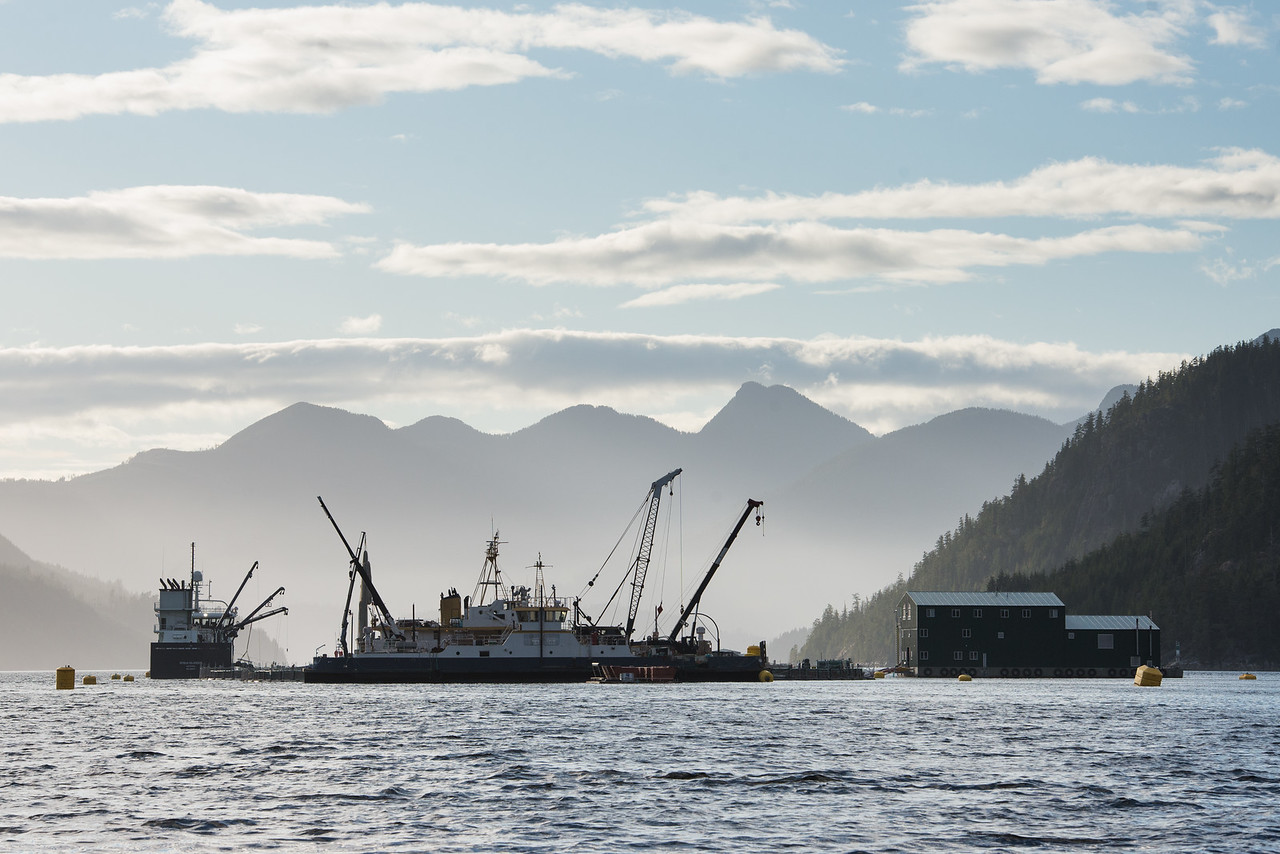
That’s why Wild Salmon Center is joining forces with WWSS to permanently end the use of open net-pens in B.C. Grant support from WSC’s The Stronghold Fund aims to supercharge efforts to raise awareness of the dangers of open net-pens, along with DFO’s reluctance to act.
“The Stronghold Fund was created specifically to meet moments like this,” says David Finkel, TSF’s Executive Director. “This is a fight that’s playing out right now in the public sphere. We need to make sure that the federal government knows that people want this promise upheld, and in the timeframe originally outlined.”
“This is a fight that’s playing out right now in the public sphere. We need to make sure that the federal government knows that people want this promise upheld, and in the timeframe originally outlined.”
The Stronghold Fund Executive Director David Finkel
According to Dr. Atlas, the continued operation of open net-pen farms in B.C. just doesn’t pencil out—not for the province’s commercial, recreational, and subsistence fisheries, nor for the federal government itself.
“The Canadian government has committed to spending hundreds of millions of dollars on salmon recovery,” he says. “Meanwhile, we know that removing these farms is a tangible and impactful action that we can take right now for wild salmon.”
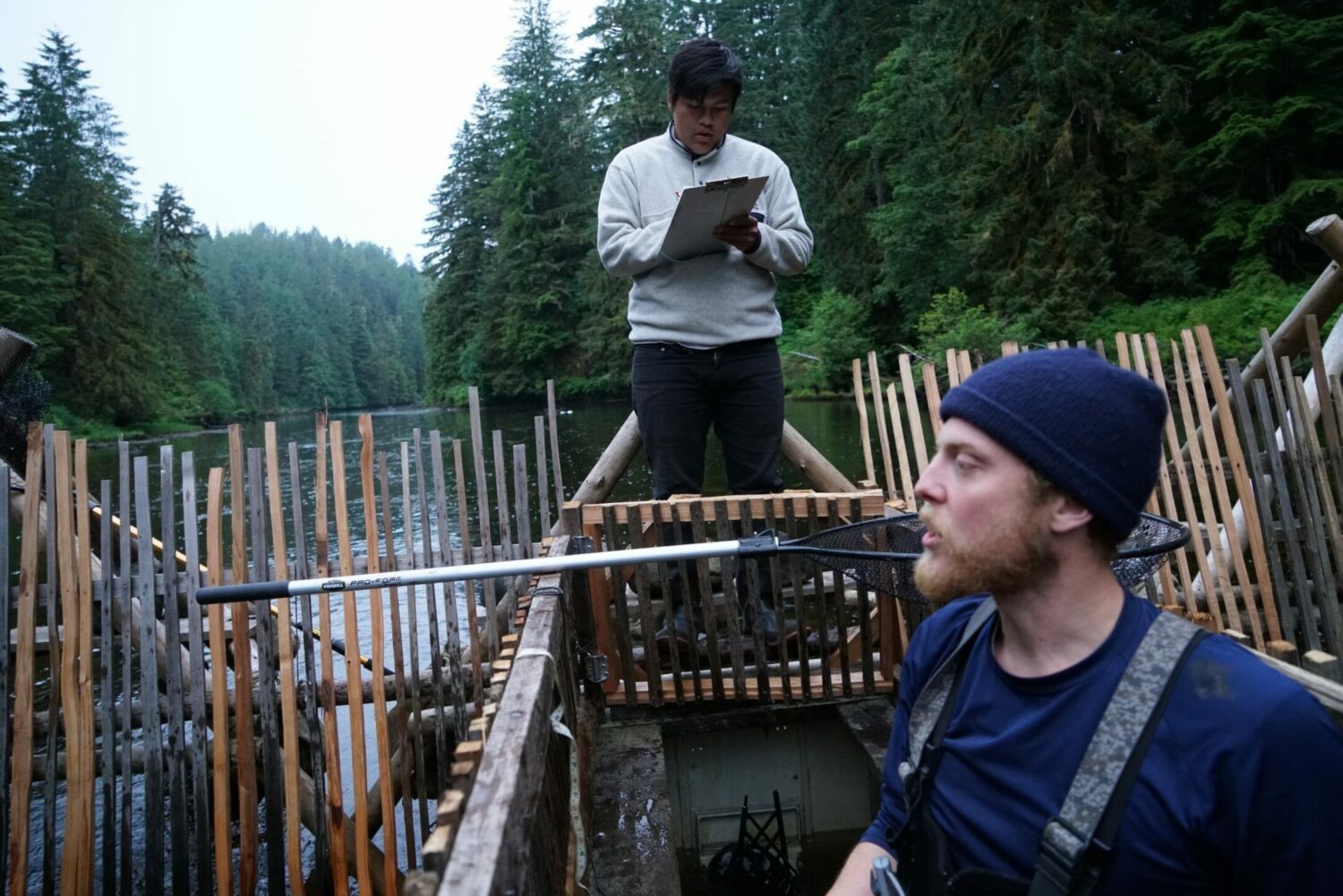
The swift and dramatic reduction in parasite levels following the Discovery Islands shutdown shows the immediate benefit of open net-pen closures for wild salmon.
On the issue of open net-pens, Canada is a regional outlier; none operate in the U.S. states of Oregon and Alaska. In Washington State, where the disastrous Cooke Aquaculture farm collapse, made headlines in 2017, the state Department of Natural Resources has banned finfish net-pen aquaculture outright.
“We know that removing these farms is a tangible and impactful action that we can take right now for wild salmon.”
WSC Salmon Watershed Scientist Dr. Will Atlas
“The fundamental problem with open net-pens is the technology itself,” Proboszcz says. “You simply can’t control for negative impacts if the system is open.”
And yet, despite widespread consensus that these risks are irreconcilable with salmon recovery efforts, DFO now seems to be stalling on progress to phase out the province’s remaining salmon farms.
Part of the problem, Proboszcz says, lies in DFO’s contradictory mandate to protect wild fish stocks while also promoting the aquaculture industry. In a series of public events in late October, Minister Murray all but abandoned specific language banning net-pens. It’s a disheartening twist, Proboszcz says, but more reason for conservation and fishing groups to stay the course.
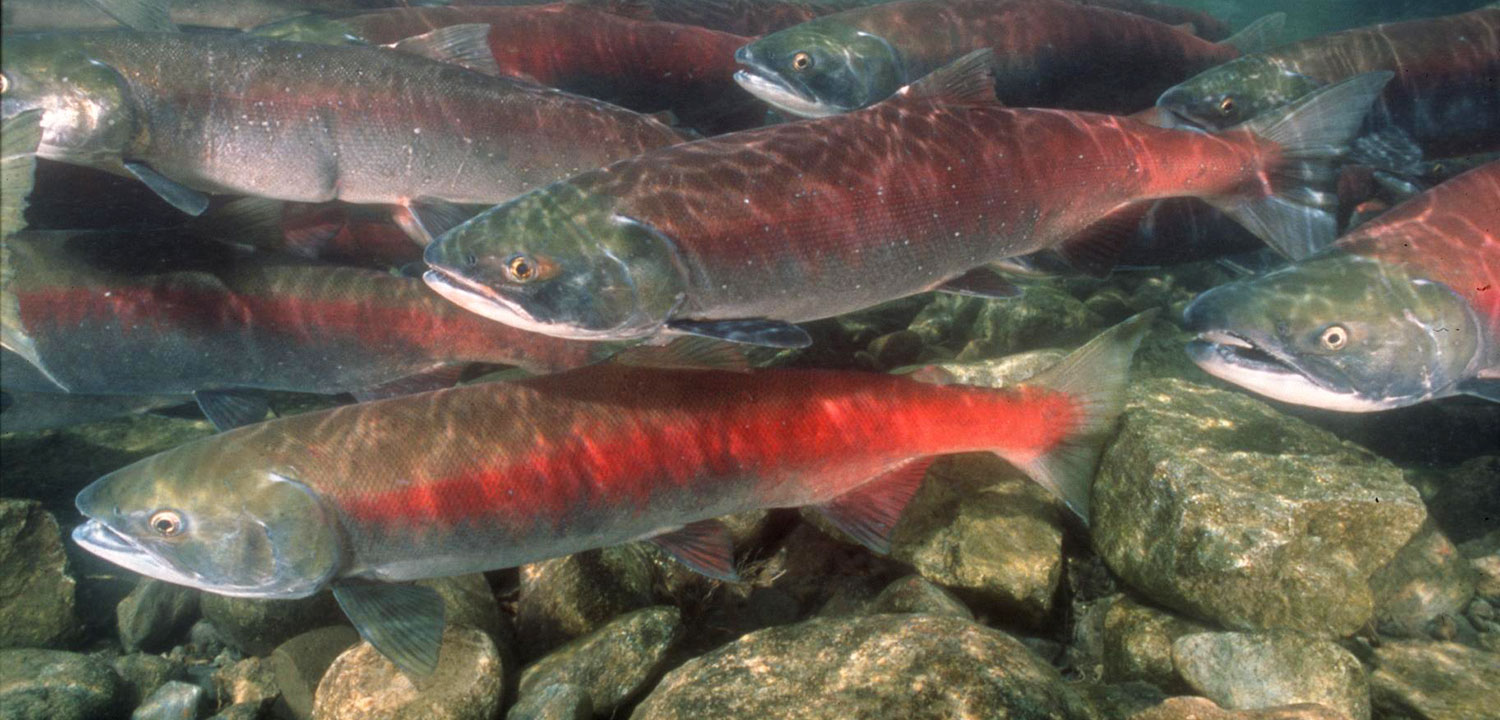
“Now we really have to keep the pressure on the government to keep its commitments,” Proboszcz says. ”Backsliding isn’t a good look for DFO. And we have facts on our side, along with international partners like Wild Salmon Center joining the fight.”
Our pressure campaign aims to hold DFO to its original promise to end the use of open-net pen salmon farms in B.C. coastal waters by 2025. That includes making sure that the agency doesn’t renege on steps already outlined for public engagement, including opportunities for public comment following the anticipated spring 2023 release of a formal transition plan for phasing out open-net pens.
Our pressure campaign aims to hold DFO to its promise to end the use of open-net pen salmon farms by 2025. That includes making sure that the agency doesn’t renege on steps already outlined for public engagement in spring 2023.
“There is still time for Minister Murray to course-correct and steer her agency back on track,” Proboszcz says. “DFO must keep its promise to remove B.C. salmon farms by 2025. Anything but that is simply unacceptable.”
With southern B.C. wild salmon and steelhead on the brink—and the benefits of closing fish farms newly reinforced by the Discovery Islands closures—Dr. Atlas says we have little time or reason for more delay.
“The technology and expertise is there to transition to a closed containment or land-based model,” Dr. Atlas says. “It’s time for the government to step up and do its job of protecting wild salmon.”
“It’s time for the government to step up and do its job of protecting wild salmon.”
WSC Salmon Watershed Scientist Dr. Will Atlas
